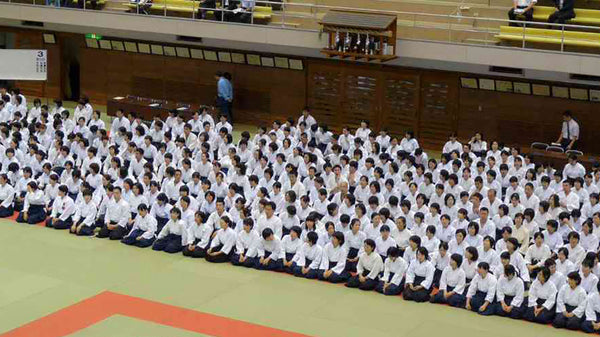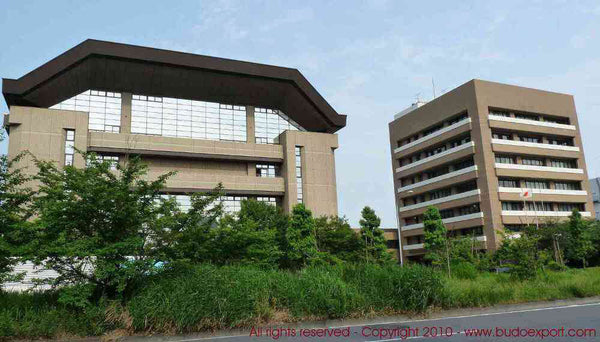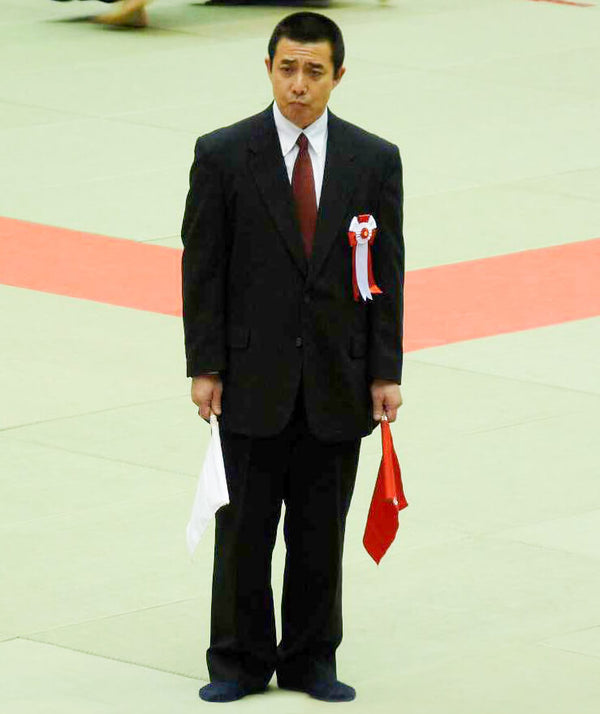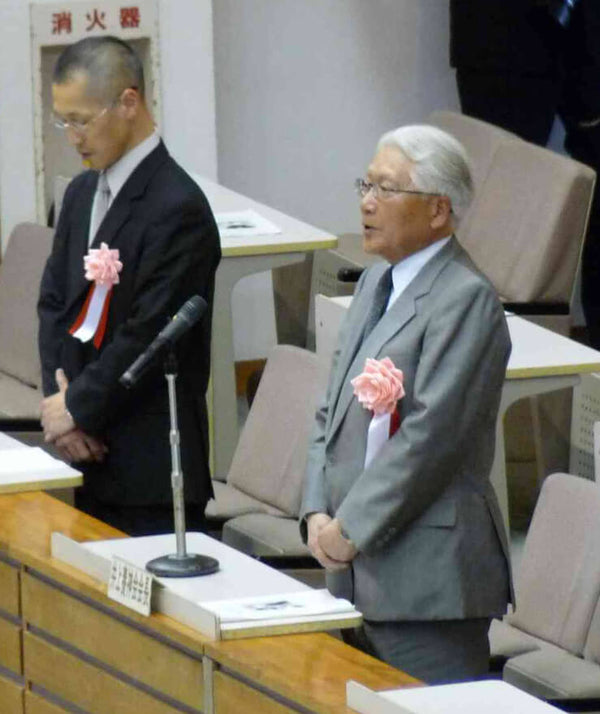Kanto Police Department’s Yoshinkan Aikido Demonstration / Competition
Following an exciting experience with Yoshinkan aikido practitioners at a Tokyo Police dojo, we were invited to attend the Kanto (Tokyo Region) Police Department’s Yoshinkan Aikido Demonstration / Competition on Tuesday, June 22, 2010 at “Jutsuka”, the training center for the Japanese antiterrorism units, located in Shin-Kiba (Tokyo).

Tokyo Police’s Yoshinkan Aikido Group
To enter these secure premises, credentials are required. We stated the name of the precinct captain who had invited us. Finally, upon checking, the guards let us in. The “Jutsuka" is made of several buildings, but we were granted access to two edifices only: the martial arts and combat training centres. Both buildings are very well equipped with all sorts of training gears, and house daily sessions of Taihojutsu, Kendo (Japanese police’s main martial art), judo, karate, aikido, kenjutsu, etc. Administrative buildings, shooting ranges and explosive devices compounds are all restricted areas. We were escorted to the 4th floor of the main building, where tiers overlook the third floor laid half with wooden flooring, half with tatami mats (thus allowing any type of practice).

The Jutsuka - Antiterrorism Police Training Center (Shin-Kiba)

Jutsuka’s main dojo
25 of the Kanto region’s 94 main police precincts were present, totalling about 300 participants divided between "Shidoin no bu", "Jiyū no bu", "Kihon no bu" and "Dantai Enbu”.
- Shidoin no bu: Instructors division.
- Jiyū no bu: Free techniques, intermediate level.
- Kihon no bu: Basic techniques (codified forms), beginner to intermediate level.
- Dantai Enbu: Group Demonstrations, beginner to intermediate level.
With the exception of the “Shodokan" style, Aikido does not have a competition system where two opponents face off. This Aikido contest is therefore a "kata" competition: each pair has to complete a sequence of pre-determined forms in a limited amount of time. When time’s up, a bell sounds, and the pairs change roles. Each pair is judged on the "visual" quality of its presentation.
90% of Tokyo Police Yoshinkan Aikido practitioners are women. Their male counterparts generally train in Kendo, Judo, and Taihojutsu mainly. It is important to understand that the police’s Aikido level is rather average: law enforcement officers do not practice martial arts in order to be combat-ready. Indeed, Japan has an extremely low crime rate, and suspects seldom act violent during their arrestation. Mastering a martial art isn’t absolutely vital. The relationship between Japanese Police and Budo is more cultural than practical, but martial arts are nonetheless "almost" mandatory. Every police precinct is equipped with a very well built dojo, and all the Japanese martial arts federations are often very close to the Police.
Kimura Shihan’s Demonstration
When we entered the Jutsuka’s main hall at 9:30am, the competition had already started and qualifying heats for the "Shidoin no bu" were over. Preliminaries for the ”Dantai Enbu” were about to start. Soon would be following qualifying matches for the "Kihon no bu" and the "Jiyuu no bu", then the semifinals for each category. Before the long-awaited finals started, one of Tokyo-PD’s Yoshinkan group main instructor, Kimura Shihan, offered us a short demonstration (see video above). Unfortunately, the attendance had already got scarcer by then since most contestants had returned to their precincts and resumed service. Only a hundred people stayed to watch the fast but intense final matches (see video below).
"Shidoin no bu” - semifinal 1 and final

Arai Sensei - 5th Dan - Ochiai Dojo

Inoue Sensei
To conclude, it is important to remind here that the Japanese Police Yoshinkan Aikido Federation is a separate entity from the Yoshinkan "civilian" Federation. Although there are interactions between those two groups, with police instructors generally coming from the latter, the differences are still significant. For example, civilians practising Yoshinkan Aikido are not allowed to attend the Police’s competitions.

Further reading: Guillaume Erard's article about our "incursion" into a Yikinkan Aikido class at the Ebara police precinct.
Online diffusion of these videos has been authorised by the Japanese police.
Any reproduction, even partial, of this article is prohibited. All rights reserved Seido Co., Ltd. & Guillaume Erard






0 comments - Kanto Police Department’s Yoshinkan Aikido Demonstration / Competition